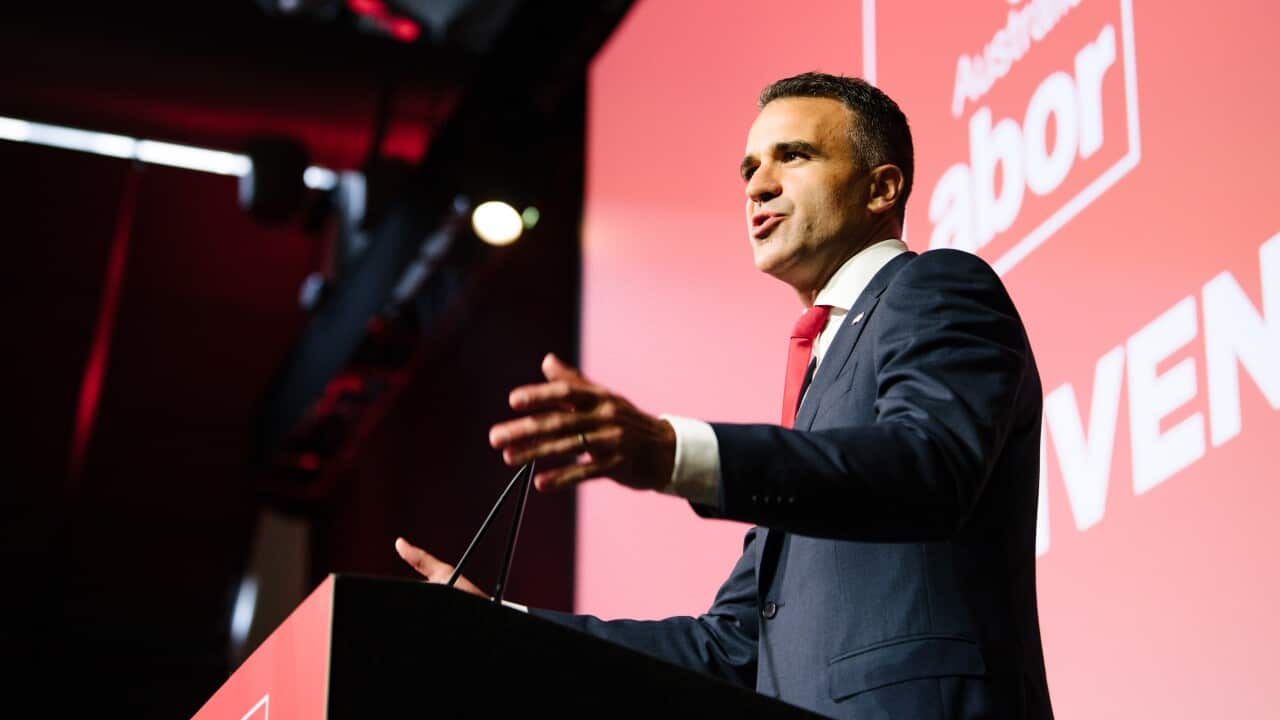SA Premier-elect Peter Malinauskas said he plans to implement a "broad" policy agenda, including placing health at the forefront of a post-pandemic recovery plan.
As vote counting continues in South Australia's election, Labor appears set to hold 25 and possibly as many as 27 seats in South Australia's 47-seat House of Assembly after its big win in Saturday's election.
The Electoral Commission on Sunday morning had Labor's primary vote up by eight percentage points to 40.5 per cent with the Liberals on 34.6 per cent.
More counting could give a clearer picture in five seats still considered doubtful, including Dunstan, held by outgoing premier Steven Marshall.
Labor Party state leader Peter Malinauskas said he wants to govern by consensus, co-operating with the federal government and future Prime Minister.
"I will work collaboratively with any government of any persuasion that is willing to do the right thing by South Australia, plain and simple. If there are examples of where the federal Coalition want to do something good by our state, I will acknowledge it," he told reporters in Adelaide on Sunday.
"But I'm not going to be ScoMo's [Scott Morrison's] quokka either.
"If they [federal government] do something I don't agree with, I will stand and fight for South Australia's interest."
He said he would be immediately looking at a post-pandemic recovery plan.
"It is my ambition to amend the Emergency Management Act. It is not fit for purpose for a pandemic that lasts two years."
He said he has a "substantial" policy agenda he will be looking to implement.
"Our policy agenda is broad," he said, adding that the issue of ambulance delays was at the forefront of the minds of many voters.
"We have a plan for hydrogen, we have a plan for educational reform that is long, going from preschool to tertiary education, we have a plan for our health system, we have got a big housing policy."
Conceding defeat on Saturday evening, Steven Marshall said it had been an honour and privilege to serve as premier.
"It's great to live in a country where we have free and open elections," he told supporters.
"Today the people of South Australia have spoken. They've elected a new government."
Mr Marshall announced on Sunday he would not seek to lead his party in opposition.
In a statement, he said that after more than nine years as leader of the Liberal Parliamentary Party it was time for someone else to take charge.
"I will step down as leader as soon as the party room is able to meet to elect my successor," he said.
"I thank all my past and current colleagues for their support over the past nine years and will do all I can to assist the new leader to succeed."
However, Mr Marshall indicated he intended to remain in the parliament, saying he looked forward to continuing to serve the voters in his eastern suburbs seat of Dunstan.
With counting continuing, the seat remained too close to call with the former premier just fractionally ahead of Labor opponent Cressida O'Hanlon, 50.3 per cent to 49.7 per cent, with about half the votes counted.
But pre-poll and postal ballots were expected to favour Mr Marshall, allowing him to retain the seat.
Additional reporting by AAP



